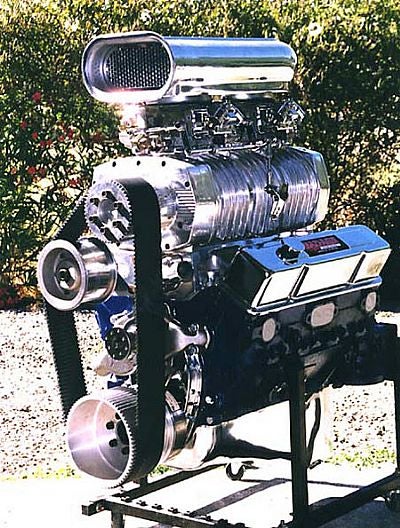 "traderQAMobileTestAutomationMobileBoostOn" (el-peasant)
"traderQAMobileTestAutomationMobileBoostOn" (el-peasant)
03/03/2015 at 19:41 • Filed to: None
 1
1
 4
4
 "traderQAMobileTestAutomationMobileBoostOn" (el-peasant)
"traderQAMobileTestAutomationMobileBoostOn" (el-peasant)
03/03/2015 at 19:41 • Filed to: None |  1 1
|  4 4 |
In addition to owning a first car soon, I hope to work part-time to learn the mechanics of an engine and how they work together. A guy at my school's grandparents own an engine building company, where I live. They build primarily Small Block Chevys. I will go in there to observe in about a month, but for now, I have no experience with working on engines. I understand about 60% of how an engine works (sans turbo/superchargers, carburetors, and cooling) but I cannot address problems like valve float and timing problems. Are there any apps or websites to help for beginners?
This also means that I can work on my own car, saving money, but probably not time. I'll do that on weekends.
Expectation:

Probably the reality:
http://imageshack.com/i/b9img3083xj
!!! UNKNOWN CONTENT TYPE !!!
 E. Julius
> traderQAMobileTestAutomationMobileBoostOn
E. Julius
> traderQAMobileTestAutomationMobileBoostOn
03/03/2015 at 20:35 |
|
Internal Combustion Engine Fundamentals by John B. Heywood is a solid and fairly comprehensive textbook on engine principles. It's old (80s), but the fundamental principles are still sound. A lot of it is highly technical stuff like thermochemistry of combustion, etc., but I think in the introduction he lists what chapters cover the broad fundamentals. You should be able to find a PDF of it somewhere online.
This will give you the basics, although you may find it a tough read (I don't know your reading ability). If you need something more basic, I would suggest you start with the wikipedia page on the internal combustion engine and click through any links on information you find relevant. That, and youtube videos. Howstuffworks.com also has some good stuff.
If you want more up to date technical information, you can find a more recent edition of the SAE's internal combustion engine handbook. This is an extremely technical text intended to be a reference for professional engineers, but I've found few resources that fit well between it and Heywood.
Another thing to consider is the demo of the Automation engine designer . It's a really neat way to wrap your ahead around how changes in things like compression ratio, ignition timing, fuel mixture, etc. interact with each other and affect engine performance. By no means is it a professional tool, but useful for a beginner, especially if you're having a hard time with a non–interactive example.
If you're interested in any of these resources and having trouble finding them online, let me know in a reply and I can send something to you.
 crowmolly
> traderQAMobileTestAutomationMobileBoostOn
crowmolly
> traderQAMobileTestAutomationMobileBoostOn
03/04/2015 at 09:53 |
|
Aside from theory you need to learn the ins and outs of building. Like properly torquing fasteners in a pattern, prepping a deck surface for a head gasket, things like that. That knowledge will be transferable.
 briannutter1
> traderQAMobileTestAutomationMobileBoostOn
briannutter1
> traderQAMobileTestAutomationMobileBoostOn
03/04/2015 at 10:17 |
|
I'm a graduate of the School of Automotive Machinists in Houston, TX. That's what got me on my path into the aftermarket and many of my classmates onto race teams. Many have gone on to own large race engine building companies.
It's not easy work. Dealing with customers can be a pain in the ass because you'll have 18 hours into some to make them right and 4 hours into others. Equipment is key. Mostly it takes a thick skin...if a customer breaks an engine due to their tune, poor parts selection due to THEIR limited budget, etc. etc.
I have a ton of old V8 machining/building books that I'm considering putting up on Ebay. Those are what got me on the road to begin with.
 Montalvo
> E. Julius
Montalvo
> E. Julius
03/04/2015 at 10:57 |
|
100% agree, I have both of them and while heywood is somewhat dated it definitely is one of the most comprehensive books out there for this type of thing.